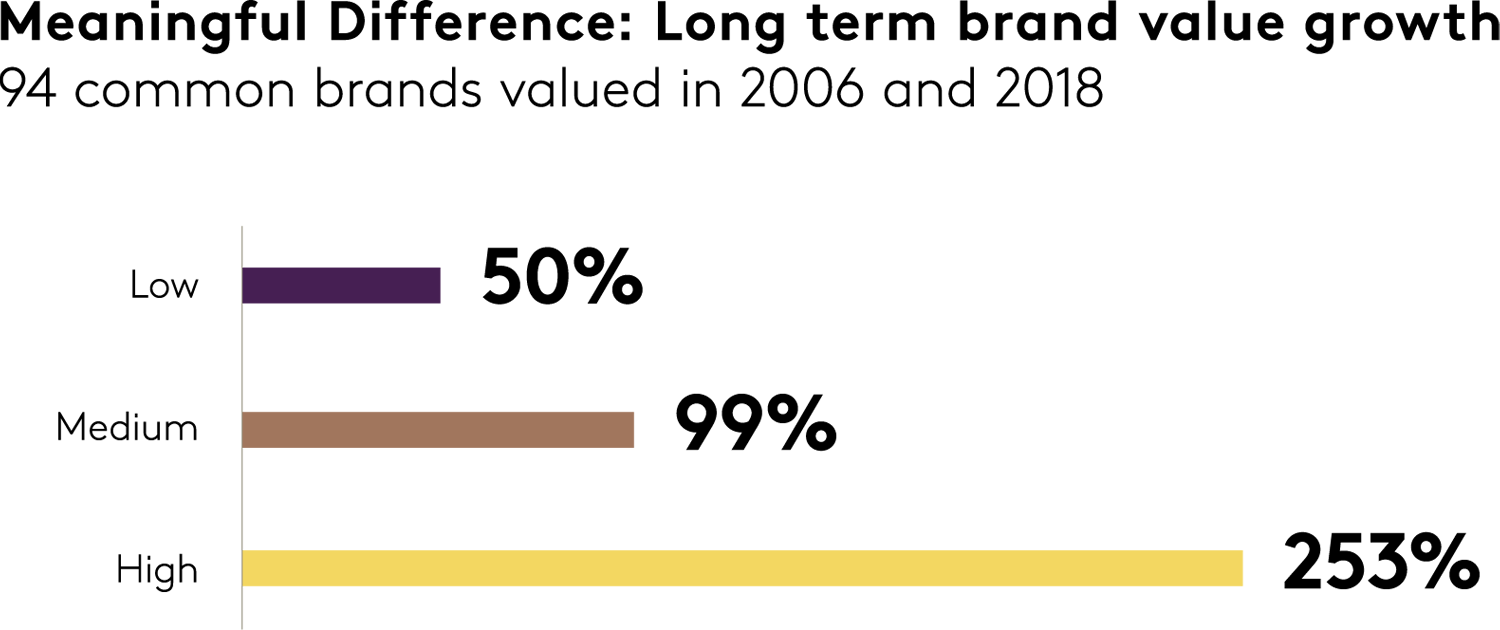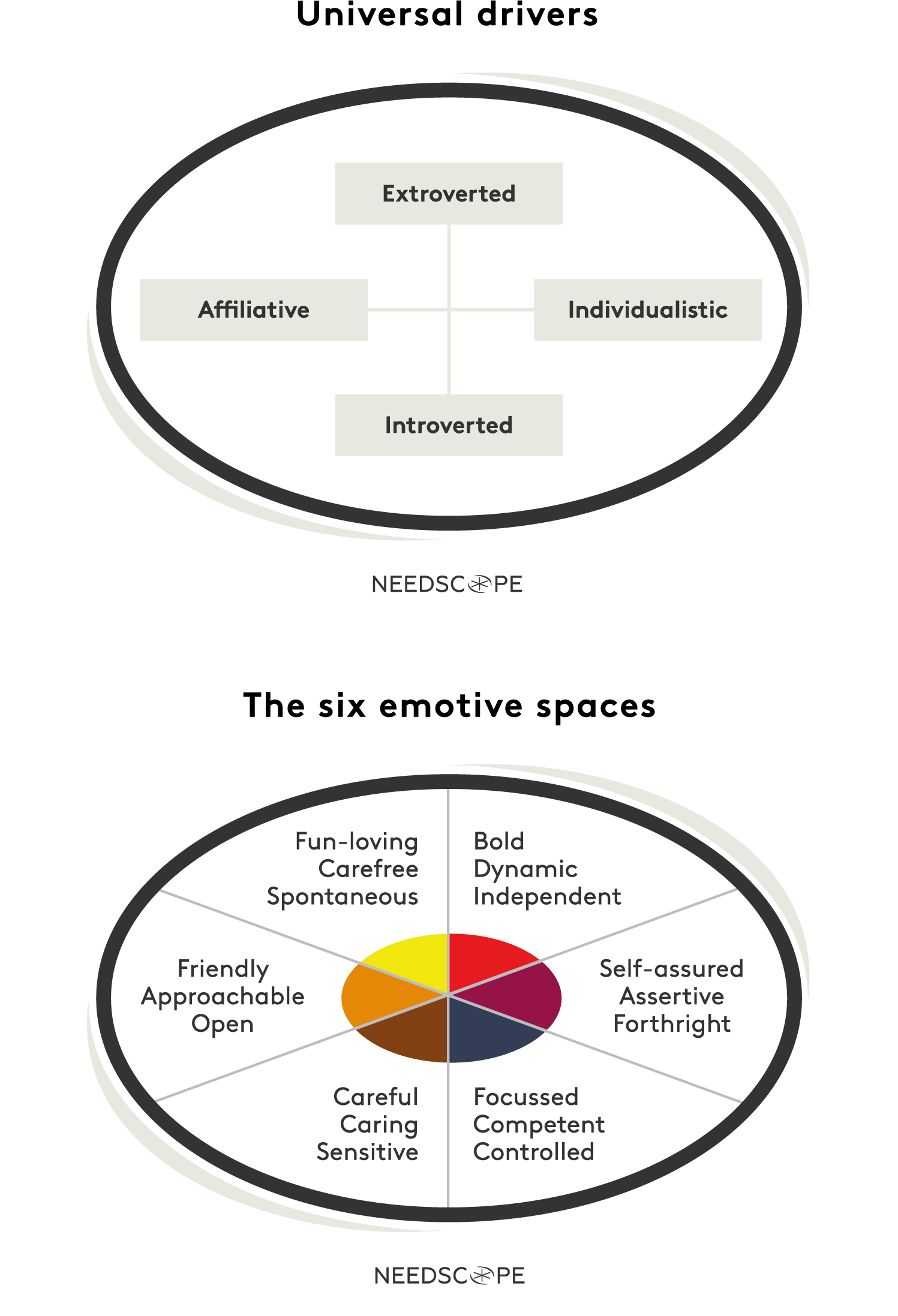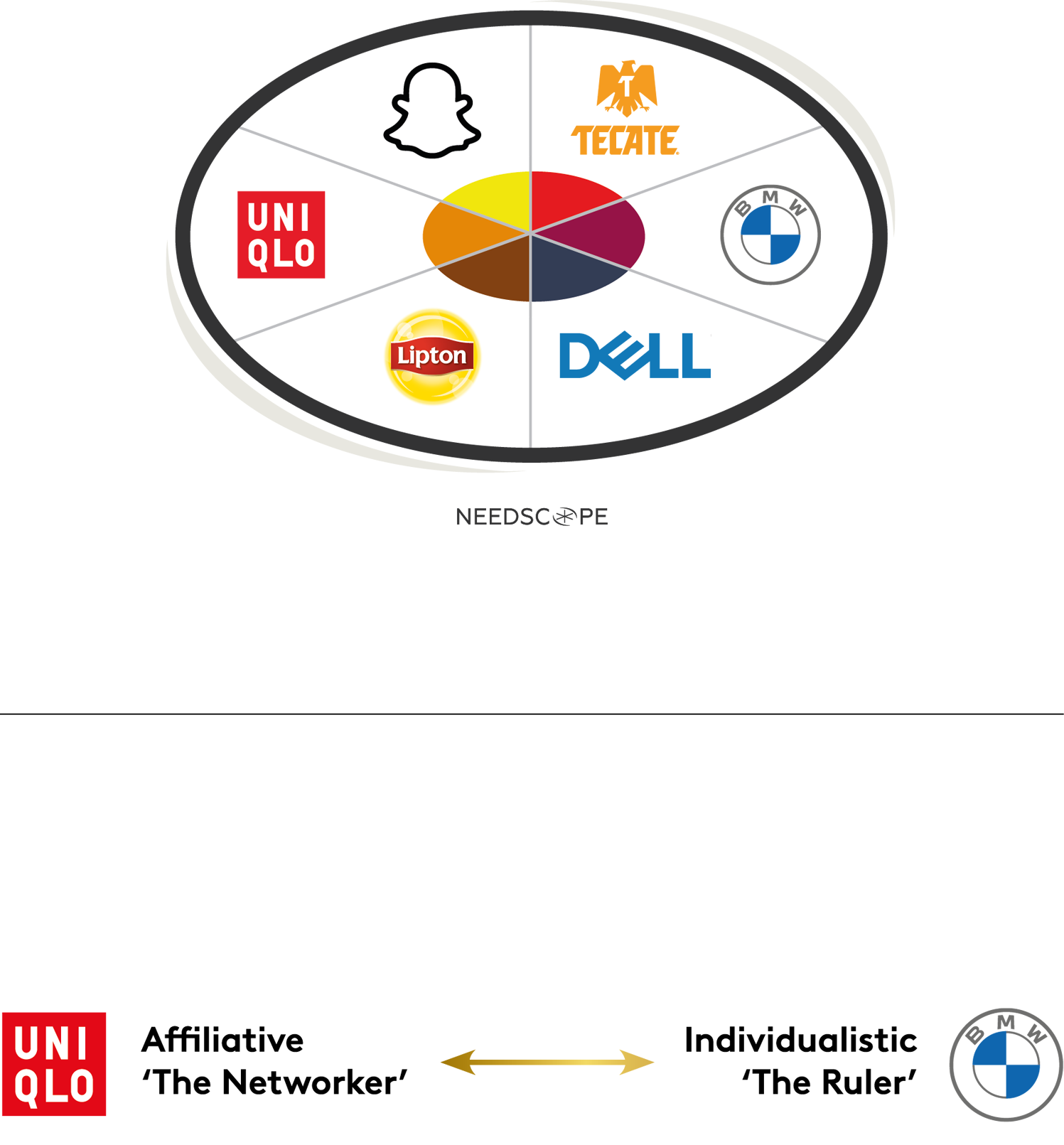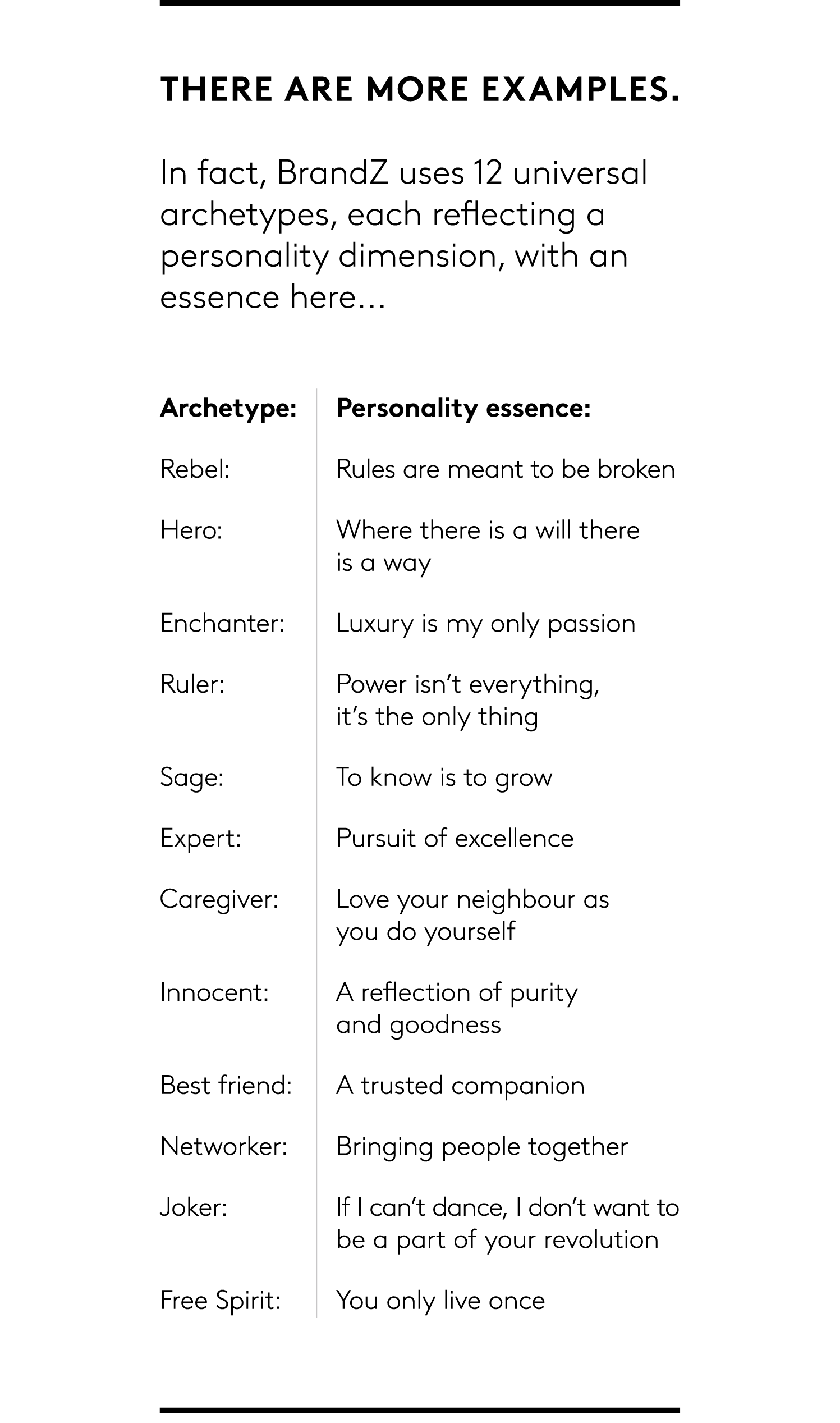We know that powerful brands share three qualities: they are more meaningful to people, they are different to other brands, and they come to mind more quickly and easily than the competition. They also offer a frictionless choice. The phrase ‘easy to mind, easy to buy’ captures this idea nicely and has become a shorthand of sorts to guide brands in thinking about the essentials in their strategy.

Look to emotion to find Meaningful Difference
So what role does brand positioning play in this? In real life brand marketing, finding a point of meaningful difference can be challenging. Many brands are functionally similar, and consumers often have a wide range of choice.
Brand owners should look to emotion in brand positioning to find that elusive point of difference. The latest neuroscience developments confirm the importance of emotion in human decision-making. Powerful brands, with high consumer predisposition, tap deep into the heart of what drives consumer choice. A framework helps to manage this – from brand strategy and positioning through to activation.
Kantar’s NeedScope framework reveals the nature of the emotive needs in a category. These form the basis of potential positioning territories that brands can occupy. Using proven psychological principles, it gives brands a strong and very human foundation upon which to build a Meaningfully Different brand positioning. NeedScope helps understand how brands can be relevant and distinctive by conveying a recognisable, meaningful, emotive essence that permeates every part of the brand and its touchpoints.
Find out your brand’s archetype and tell your story better
Kantar BrandZ now has data illustrating how emotive based positioning can work through brand archetypes. Humans have an innate need for storytelling – making sense of the world through mental constructs. They are the lens through which we understand ourselves and the other people we encounter. Archetypes are deeply rooted in the human psyche; and will trigger an emotional response.
In brand marketing, archetypes can help brands resonate more deeply with consumers. A classic example is Harley Davidson. It’s not difficult to assume their positioning leans heavily on the Rebel archetype. This reference is clear when you think of the attitude and the emotion portrayed by the brand through the logo (reminiscent of an outlaw motorcycle jacket ‘patch’) and the irreverent tonality often used in its advertising.

Reading the BrandZ Brand Personality data further we see several brands with a strong link to a different archetype. For example: Tecate Beer is a Rebel; BMW is a Ruler; Dell is a Sage; Lipton Iced Tea is a Caregiver; Uniqlo is a Networker; and Snapchat is a Joker. Through this link, these brands can map to the different spaces in the NeedScope model.

Many of these categorisations make intuitive sense. A quick glance at the logo colours, shapes and imagery reveals how the archetypes work to dial up different emotions. But it’s more than just the logo. To be most effective this deeper archetypal meaning needs to permeate throughout the brand’s touchpoints. Let’s look at two brands more deeply, Uniqlo and BMW, both among the most valuable global brands in their categories. They sit at opposite ends of the spectrum of the positioning model – Uniqlo more affiliative as a Networker, BMW more individualistic and assertive as a Ruler…

In their communications, the archetypes are seen even more clearly. Uniqlo’s ‘made for all’ campaign exudes a warm affiliative feeling aligning well with ‘The Networker’ archetype. Contrast that with the dynamic (albeit humorous) tonality BMW use in their recent Superbowl Ad featuring Zeus as a lead character! A literal archetypal character in this case.
A crowded sector? Don’t fret. Here’s how to stand out.
You would think this powerful link between archetypes, emotional positioning and brand performance seems obvious. However, BrandZ also reveals that only around one third of brands have a strong or moderate association with an archetypal personality. Most brands don’t. This is a glaring lost opportunity. For some brands this might not matter, particularly if you have a massive size advantage or a unique element in your functionality, such as Amazon and PayPal. But many brands operating in cluttered markets don’t have this luxury. Finding a point of Meaningful Difference is crucial to achieving value growth in the longer term. If your brand is looking for a point of meaningful difference, then tapping a deeper sense of emotion though brand archetypes is a good way to build one.
Read more about creating powerful connections with consumers and marketing’s role in the latest Kantar BrandZ global report and get in touch to find out more.


